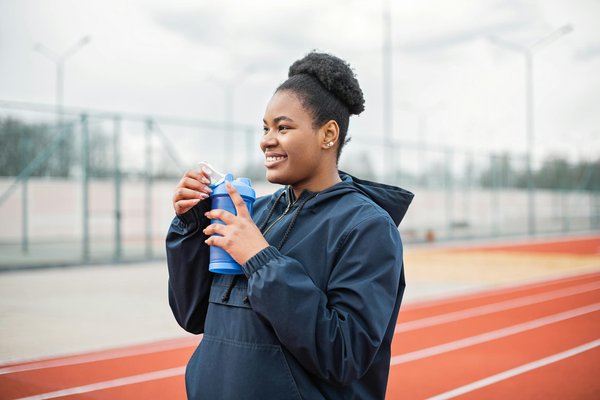UK’s Strategic Approach to International Sports Events Preparation
The UK sports strategy emphasizes a cohesive framework to enhance readiness for international sports events. This strategy involves coordinated efforts across government departments and national governing bodies to ensure athletes and event organizers are well-prepared.
A central element is the ongoing updating of policies aligning with global competition standards. The government, through initiatives led by the Department for Digital, Culture, Media & Sport (DCMS), provides pivotal support focused on funding, infrastructure, and athlete development programs. Collaboration with governing bodies such as UK Sport and Sport England ensures that resources effectively reach grassroots to elite levels.
Recent official announcements highlight a structured timeline addressing upcoming global competitions, including commitments to sustainability, athlete welfare, and technological integration. By maintaining transparent communication and adaptive strategies, the UK strengthens its competitive edge and hosting capabilities. These government initiatives not only bolster athlete performance but also enhance the overall experience for international audiences, showcasing the UK’s dedication to excellence in sports.
This strategic approach underlines the UK’s active role in shaping global sports landscapes through policy, partnership, and innovation, positioning the nation prominently on the international stage.
Athlete Training and Support Programs
Supporting athlete development is crucial for achieving success at international competitions. Recent enhancements in high-performance training focus on personalized regimes that maximize physical conditioning and skill refinement. Athletes benefit from cutting-edge technologies and data-driven coaching methods, ensuring their preparation aligns precisely with competition demands.
Equally important are initiatives centered on athlete health and psychological support. Comprehensive welfare programs include mental health services and regular medical assessments, fostering resilience and well-being. These resources help mitigate burnout and injury risks, contributing to sustained peak performance.
Collaboration plays a key role in elevating athlete preparation. Partnerships with both local and international training facilities offer access to diverse environments and expertise. This broad network allows Team GB athletes to experience varied training conditions, enhancing adaptability.
Together, these elements form a robust support system tailored to optimize every athlete’s potential. By integrating tailored physical programs with holistic welfare and strategic partnerships, Team GB’s athlete development and high-performance training programs ensure readiness for the global stage.
Investments in Sports Facilities and Infrastructure
Strategic sports infrastructure upgrades are crucial for enhancing both athlete performance and spectator experience. Significant facility investment often focuses on constructing new training centers and refurbishing existing competition venues. These improvements ensure venues meet international standards, accommodating the demands of major events and daily use.
A growing priority is the integration of accessibility improvements. Facilities now commonly feature ramps, tactile guides, and adaptable seating to support athletes and audiences with diverse needs. Alongside accessibility, sustainability measures like solar panels, efficient water systems, and green construction materials are becoming standard. These environmentally conscious features reduce operational costs and environmental impact.
For example, recent investments have transformed some key venues with upgraded locker rooms, advanced lighting systems, and improved spectator amenities. These upgrades not only prepare facilities for top-tier competitions but also promote long-term utility, benefiting local communities and sports organizations alike.
By balancing modernization with accessibility and sustainability, investments in sports infrastructure strengthen the foundation for successful events and inclusive participation.
Funding and Resource Allocation
Government grants constitute a significant portion of sports funding UK, providing essential financial backing for athlete development and event preparedness. This funding supports training programs, equipment procurement, and competition participation. The private sector complements this by investing through sponsorships and partnerships, enhancing overall resource support.
Recent adjustments in sports funding UK have increased emphasis on equitable distribution to both elite athletes and grassroots initiatives. These changes aim to sustain long-term athlete performance while fostering community engagement. The government has also introduced targeted grants to improve facilities, ensuring teams and athletes receive comprehensive assistance.
Host cities benefit directly from these financial resources as well. Funding covers the enhancement of regional infrastructure, from upgraded training venues to transportation improvements, critical for hosting successful sporting events. This holistic approach ensures the region can manage both immediate event demands and legacy benefits, aligning with broader public interest.
Strategic collaboration between government agencies and private entities strengthens resource support, enabling adaptive responses to evolving needs in the sports sector. This approach not only sustains competitive standards but also promotes accessibility and inclusivity across the UK.
Hosting and Participation in Major International Competitions
The UK competition participation landscape is dynamic, with several forthcoming events where the UK is both a host and key contender. Official announcements confirm that the UK will host major international sports competitions, ensuring the country remains central on the global stage. This hosting role not only boosts local economies but also provides a home advantage for British athletes.
Event scheduling is meticulously planned to optimize both athlete readiness and audience engagement. Organizers coordinate dates to avoid clashes with other global tournaments, maximizing visibility and media coverage. The process involves aligning venues, logistics, and broadcasting slots to streamline operations.
Regarding team selection updates, governing bodies have implemented rigorous processes to select top competitors. Selection criteria typically involve recent performance metrics and trial outcomes. This approach enhances the UK’s chances of success by fielding highly competitive squads.
Strategies to maximise UK representation include increased investment in training facilities and talent identification programs. Partnerships with international federations also enable knowledge exchange and access to wider competitive experience. Collectively, these efforts aim to strengthen the UK’s position in international arenas and showcase its commitment to sporting excellence.
